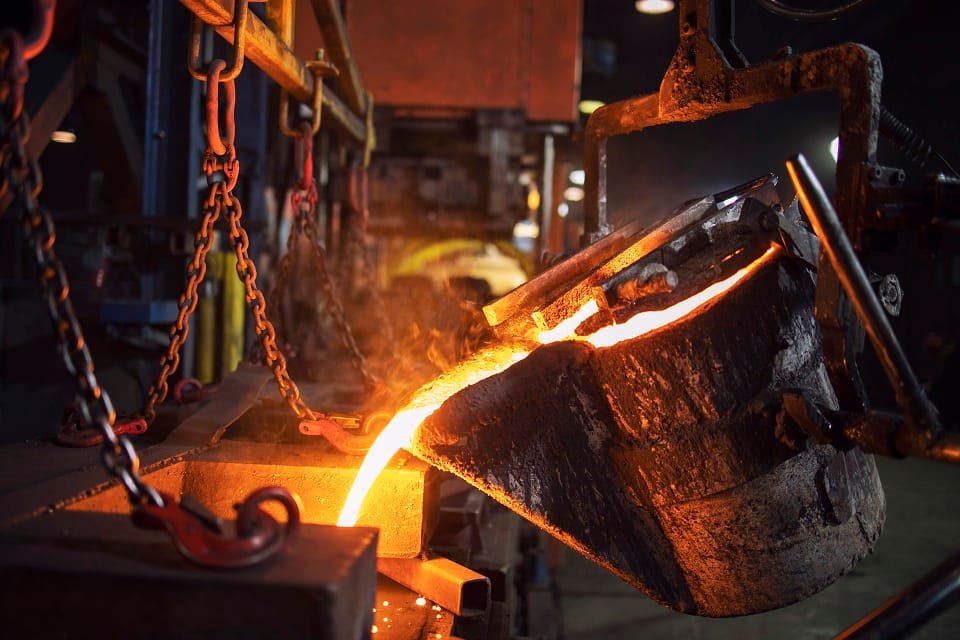Let’s Understand the Thermal Conductivity of Brass in Heat Transfer Applications

Before buying something, you must know all its characteristics. That is what we do here. Sneh Metal Alloys helps you know everything about brass, its characteristics, and how you can protect it in different situations.
Sneh Metal Alloys is a leading manufacturer, supplier, and exporter of extruded profiles in non-ferrous metals. We have been in this industry for around a decade and know everything that is necessary for your machines. We have assisted many with our customized brass components, as well as written a guide on how you can utilise the brass scrap.
Understanding the thermal conductivity of brass in heat transfer.
As you choose a material for a heat transfer system, it is necessary to know about the thermal conductivity, so let’s start from the beginning.
What is Thermal Conductivity?
Thermal conductivity, in simpler words, means a material’s ability to conduct heat. As we all know, metals have high values, and hence they are the ultimate choice for heat exchangers, radiators, and components in electric systems.
As we talk specifically about the thermal conductivity of brass, it ranges from 109 to 130 W/m.k. The range of thermal conductivity of brass varies depending on the amount of copper and zinc you add to the alloy. However, if we compare the thermal conductivity of brass, it is not as good as that of copper.
As we have learned about thermal conductivity, now let’s read about the important factors of brass’s thermal properties.
Every metal has its own characteristics and brass also has some traits that are important when it comes to thermal conductivity. Here we are listing some exclusive traits of brass.
- Moderate thermal conductivity: As per the reports, brass doesn’t move heat as fast as copper and hence it spreads and gets rid of heat in certain ways.
- Thermal expansion: As brass comes into contact with heat, it starts to expand, and for some industries, this proves to be perfect. This trait of brass is useful in engines, HVAC systems, and any of the applications that change the temperature.
- Melting point: Brass offers a range that is enough for many of the high-temperature jobs. The melting point of brass ranges from 900°C to 940°C.
- Corrosion resistance: When you require something for the long term, you must find out about the corrosion resistance. And you will be shocked that brass can hold up against moisture and many chemicals. This trait of brass makes it the go-to option for plumbing, marine hardware, and chemical processing.
Where can you use brass in a heat transfer system?
As we have read the important characteristics of brass, now let’s step ahead to the next thing, that is, where can we use brass in a heat transfer system? We are listing a few applications where you can use brass for heat transfer.
- Radiator cores and tanks: Due to the thermal conductivity of brass, it is used in radiator cores and tanks, which are used in older cars.
- Heat exchanger fittings: Brass is the perfect metal that can be shaped and resists rust, making it perfect for heat exchanger fittings.
- Electrical terminals and connectors: As we discussed above, brass can easily dissipate heat and hence proves perfect for electrical terminals and connectors.
- HVAC components: Brass can be used for HVAC components’ valves and control devices due to the thermal conductivity of brass.
- Plumbing systems: In plumbing systems, when brass is used, it can handle the hot water application with ease compared to other metals.
Why is brass the best metal for heat transfer?
When we compare all the metals to brass for heat transfer, no one can beat the brass. However, copper can beat the brass but it will put you in a financial strain. Hence, brass becomes the perfect option to use for thermal conductivity in heat transfer.
Here we are listing a few things why brass is the ultimate choice for thermal conductivity in heat transfer.
- Brass is a budget-friendly metal and won’t add much to your financial strain.
- Brass can easily be shaped without cracking.
- As we have stated above, it won’t be affected when it comes into contact with moisture and minerals.
- Brass has the ultimate steady heat-moving ability.
Why choose Sneh Metal Alloys for your brass requirements?
We have been in this industry for a long time. We know exactly what your machine requires, and we deliver the exact same thing. As you connect with us and share your requirements, we will manufacture the customized components as per your precise requirements and deliver the end result. Connecting with Sneh Metal Alloys means you are connecting with the right associate who will guide you in the right way.
Conclusion
Sneh Metal Alloys is the ultimate partner for all your brass-related requirements. We have assisted many industries as well as manufactured customized components as per user requirements. Connect with us and we will guide you in the right way as per your requirements. Expect the unexpected result from Sneh Metal Alloys.

